Sunni Leader Calls For Justice On 'Khash Bloody Friday' Anniversary
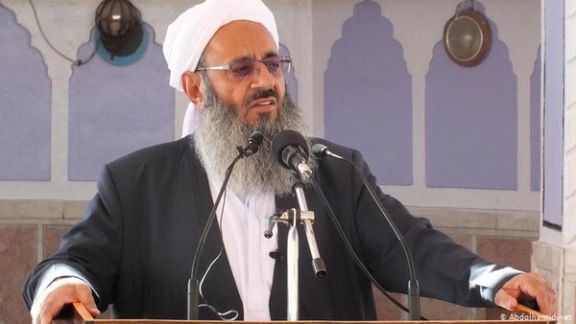
Iran’s top Sunni cleric Mowlavi Abdolhamid called for “justice” during his weekly sermons referring to a massacre which took place in the city of Khash last year.

Iran’s top Sunni cleric Mowlavi Abdolhamid called for “justice” during his weekly sermons referring to a massacre which took place in the city of Khash last year.
According to Amnesty International, during the "Bloody Friday of Khash" in November 2022, the Islamic Republic forces shot live ammunition at protesters and worshippers, killing at least 18 people, including two children, and injuring dozens.
In his remarks on Friday, Abdolhamid expressed the Iranian people's demand for "justice" and the punishment of the culprits behind the massacre. The incident occurred a few weeks after a similar attack by security forces in the provincial capital Zahedan, where about 100 protesters were killed by the regime’s security forces.
Human rights media outlet Haalvsh has also reported the presence of military forces and intense security measures around Zahedan's Makki Mosque and the city of Khash.
Abdolhamid emphasized the importance of justice and freedom in Iran in his Friday sermon. He stated that existing discrimination and inequalities must be addressed, and political prisoners, including writers, journalists, and intellectuals, should be released and criticism should be tolerated.
After the bloody attacks on protesters in Zahedan and Khash, various cities in Sistan and Baluchestan province have been scenes of popular demonstrations every Friday over the past year.
Despite increased pressure, the protests have continued with authorities blocking the internet and access to communication in the province. Rights groups say, the internet has been shut down continuously since the widespread anti-government protests began in September 2022.
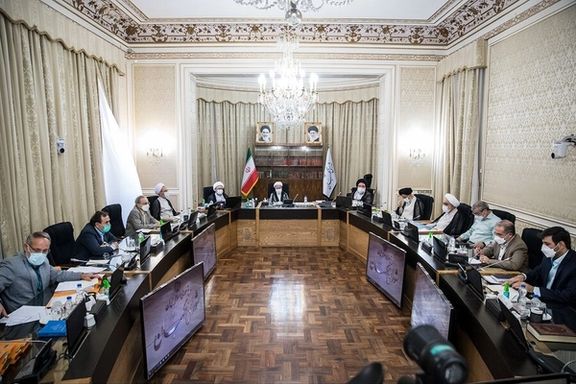
Less than four months before Iran's parliamentary elections, there is still a lot of confusion among various political groups about the vetting of candidates.
The Iranian regime has established a politically charged vetting process, which has grown progressively capricious and opaque, preventing even loyal politicians from becoming candidates.
Reformists and moderate conservatives are deeply skeptical about the fairness of this vetting process. They accuse the Interior Ministry and Guardian Council of arbitrarily disqualifying all but the ultraconservative candidates. They describe this process as "engineering the elections."
This week, Ezzatollah Yousefian Molla, a former centrist lawmaker, claimed that individuals from former President Mahmoud Ahmadinejad's inner circle and some members of the ultraconservative Paydari Party, which aims to secure the majority of seats in the Iranian parliament (Majles), have infiltrated the executive committee of the Interior Ministry. This committee is responsible for shortlisting over 24,000 candidates who have registered for the elections scheduled for March 1.
Molla said in an interview with Khabar Online website in Tehran that the vetting should take place in an atmosphere that would not be indicative of any bias in favor of a certain political group. He argued that the executive committee is exhibiting such bias that all candidates are now hoping for a fair evaluation by the Guardian Council, although the Guardian Council is notorious for arbitrary disqualifications in Iran's political circles.
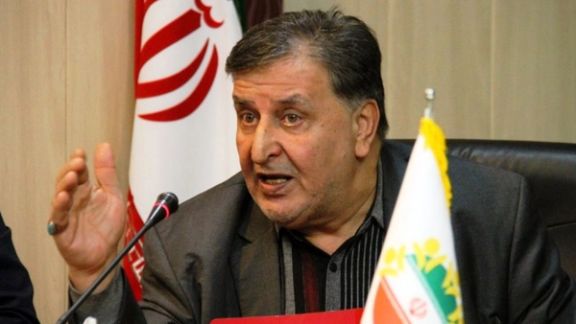
Molla also pointed out that none of the candidates are aware of who their political rivals are because the new election law has classified the candidates' list as confidential. This issue needs addressing.
Recently, Interior Minister Ahmad Vahidi announced the names of the members of the executive committee, including a range of ultraconservative former officials, many of whom were Ahmadinejad's cabinet ministers with links to the Paydari Party, allied with Ahmadinejad during the first round of his presidency (2005-2009). Others in the committee include traditional conservative figure and former Trade Minister Yahya Al-e Es'haq and a few other less well-known individuals. The minister characterized the committee members as "popular" figures.
Outspoken former lawmaker Gholam-Ali Jafarzadeh Imanabadi also expressed concern about nearly all of the committee members' link to Paydari. He said the combination of the committee was indicative of Paydari's deep infiltration of the Interior Ministry ahead of the election.
At the same time, while some reformists and moderates still wish to take part n the elections and form at least a minority in the next Majles, the main competition appears to be taking place among ultraconservatives and Majles Speaker Mohammad Bagher Ghalibaf's inner circle who call themselves "neo-cons."
For the first time Ghalibaf has given his political group a name: The Association of Awakened Revolutionaries. According to Etemad newspaper, the group recently held its "congress,”, however, President Ebrahim Raisi refused to accept Ghalibaf's invitation to be present at the congress, where the most prominent guest was former Majles Speaker Gholam Ali Haddad Adel. Etemad wrote that Raisi's absence was a clear sign of his rivalry with the new group.
Sobh-e No, a newspaper linked to Ghalibaf said 4,000 people took part in the congress, several sources pointed out that venue where it was held could accommodate a maximum of 800 people. Sobh-e No, sarcastically labeled those who refused to attend the new group's congress "political outcasts."
Outspoken ultraconservative cleric Hamid Rasai criticized Ghalibaf's team and said the meeting cost a lot of money and it is not clear how much more Ghalibaf is going to spend on his campaign before the elections in the next four months. Other conservative figures such as political commentator Mohammad Mohajeri called on Ghalibaf to be transparent on the costs of his group's congress.
In another development, IRGC's newspaper, Javan, criticized Paydari, Ghalibaf and other conservative figures and political groups for their "illogical and biased" behavior, including their mutual mudslinging.
On a lighter note, conservative candidate Mohammad Reza Bahonar, who recently voiced concern about his potential disqualification by the Guardian Council, has promised in an interview to help the reformists to get through the Council's vetting process. His move hints at the possibility of an alliance with reformists and resembles the Persian proverb: "If the bald man was a good doctor, he should have first tried to grow hair on his own skull."
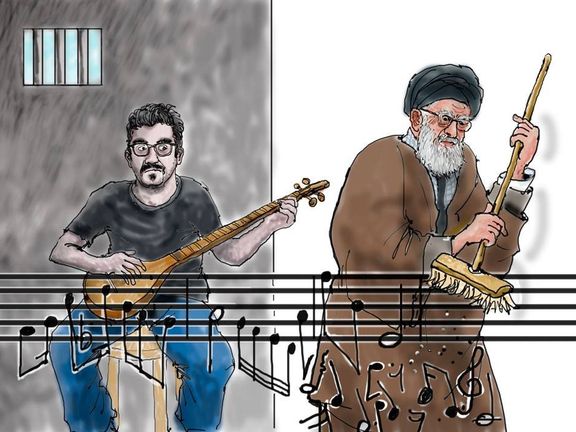
Mehdi Rajabian, a dissident Iranian composer, has won the United Nations International Art Contest for Minority Artists.
This annual award is given to three artists who address "topics related to the intersectionality of various forms of discrimination and compound discriminations."
Rajabian is the first composer to win this award. A visual artist from Nigeria and a painter from Spain were the two other winners of the award this year.
"Happiness is a collective event, and unfortunately, no one is happy here [Iran]. The situation has changed completely after the recent protests. No award can be a criterion for determining an artist's artistic value, but it can certainly be a platform for the voice of human rights and artistic freedom,” said Rajabian in response to his win.
The UN Art award was presented to Mr. Rajabian in absentia because he is restricted from leaving Iran.
The artist has been detained and faced prison sentences in previous years because of his work. Rajabian was arrested in 2013 for releasing underground music and was charged with “propaganda against the government”. He was put in solitary confinement for three months and then released on bail.
Rajabian was again arrested in 2015 for his album The History of Iran Narrated by Setar, a lute-like instrument used in traditional Persian music.
In Tehran’s notorious Evin prison, Rajabian began a 40-day hunger strike that led to his release on parole in 2017.
Rajabian was arrested again in 2020 for his album Middle Eastern but did not spend time in jail and was released on bail. He was accused of “encouraging prostitution” because females were singing in the album.
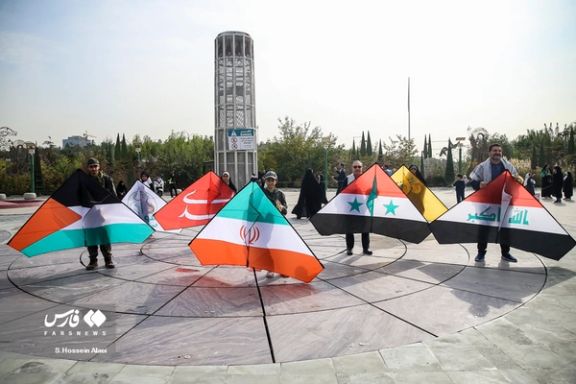
The hardline Fars News Agency, affiliated with IRGC, has reported that an anti-Israel call is being made across schools in Iran amid the Hamas-Israel war.
Fras wrote that this ceremony would take place on Saturday with cultural programs, music performances and expression of opposition to “hostile policies” of the United States and Israel as well as the conflict in Gaza.
Students and the public will be chanting Islamic nationalist slogans and songs regarding "a new global order with an ideal generation,” Fars said.
Meanwhile images on social media show students singing a different tune. Iranians have been showing strong opposition to the government's pro-Hamas and anti-Israeli narratives as well as unusually vocal support for Israel in its war with Hamas.
“Neither Gaza, nor Lebanon, I will sacrifice my life for Iran,” has been a popular slogan that has been chanted by student in schools, which contradicts the report by Fars news, one of the main media outlets of Iran’s Revolutionary Guards.
The Iranian regime has a history of using schools and rallies to further its agenda and narrative with regards to the conflict in the Middle East.
Numerous instances of Iranians expressing support for Israel have emerged on social media including during a football match between Esteghlal and Havadar teams back in October.
Podcaster Sadegh Rohani pointed out in a tweet: "Israel has never been as popular in Iran as it is now. Even if there were Israel supporters before, they were not as outspoken as they are today.”
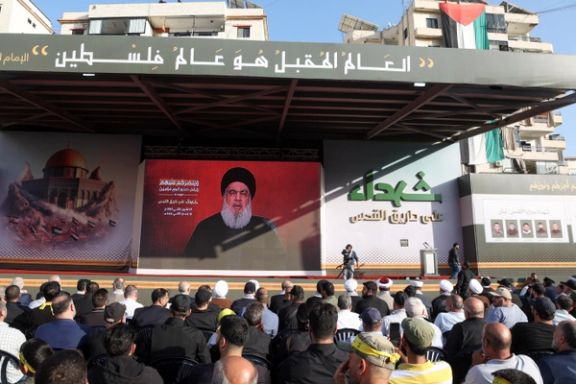
Hezbollah's leader, who has refrained from getting fully involved in the Hamas-Israel war so far, said Friday that the battle has spread to other fronts.
Hassan Nasrallah broke his month-long silence on its Palestinian ally’s war with Israel in a long-advertised televised speech on Friday, thanked "Iraqi and Yemeni hands" that have joined the battle. Houthis in Yemen have launched drone and missile against Israel that have so far failed to hit a target. Pro-Iran Iraqi militias have launched nearly 30 attacks against US forces in Syria and Iraq.
Hezbollah supporters also held gatherings in Beirut, where Lebanese watched Nasrallah's first public address since Hamas went to war with Israel. In Tehran, the regime installed large screens at a main square to broadcast the speech live. Supporters of Iraqi Shiite armed groups also gathered in Baghdad's Tahrir Square to watch the speech.
Nasrallah added that the decision to launch the October 7 attack on Israel by Hamas was 100-percent a Palestinian decision.
Iran and Hezbollah have been accused of full involvement in the planning of the attack, with several public and secret joint meetings having been held since April in Beirut and Damascus.
"We are ready for all possibilities," Nasrallah said.

Al-Aqsa Flood battle has extended to more than one front, he said, adding, “We thank the Iraqi, Yemeni hands that joined this battle." However, he claimed that the decision for the attack was made by the Palestinian group and no other group of the resistance front – the term for Iran’s proxy militia – was aware of the operation.
Hezbollah have been escalating day by day, forcing Israel to keep its forces near the Lebanese border instead of the Gaza Strip and the occupied West Bank, Nasrallah said in the televised address. "What's happening on the border might seem modest but is very important."
Defending the surprise attack, he said such a big victory makes it worth the high number of people who have been killed in Israel’s retaliatory fire because the October 7 attack changed the landscapes of the Middle Eastern conflicts. He also blamed the conflict and high Palestinian civilian death toll on the United States.
He said one of the biggest mistakes Israel is making now in its war against Hamas in Gaza is pursuing goals that it cannot achieve, referring to uprooting the Islamist group. "For a whole month, Israel could not offer a single military achievement," Nasrallah claimed, adding that Israel can only get back hostages through negotiation.
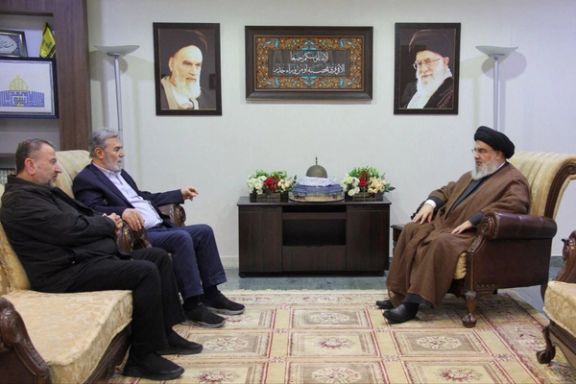
Hezbollah has been exchanging fire with Israeli forces across the border since October 7, when Hamas -- another Iran-funded militia – declared war on Israel in a multi-thronged attack terror codenamed al-Aqsa Flood (Storm in Persian) and killed over 1,400 Israelis and took over 230 hostages.
Iran has repeatedly threatened that the war will escalate to other fronts unless Israel halts its retaliatory offensive against Hamas in Gaza. In addition to sporadic clashes in the West Bank and multiple rocket and drone attacks against bases hosting US forces in Iraq and Syria, Hezbollah’s active engagement in the war can significantly change the landscape of the conflict. However, Hezbollah has not yet unleashed its large missile arsenal against Israel or tried any incursions.
According to the latest public estimates, Hezbollah has around 150,000 rockets and missiles, most with a reported range of a few dozen to hundreds of kilometers. On Thursday, The Wall Street Journal reported that Russia's Wagner mercenary group plans to provide Hezbollah with an air defense system, foreshadowing planning for a looming war.
Iran's Revolutionary Guards founded Hezbollah in 1982, in the middle of Lebanon's 1975-90 civil war. It was part of Iran's effort to export its 1979 Islamic Revolution around the region and fight Israeli forces after their 1982 invasion of Lebanon.
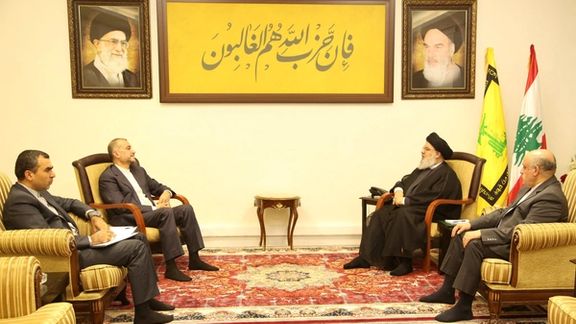
Hezbollah said Thursday that it had attacked an Israeli army position using explosive drones for the first time, prompting heavy Israeli shelling, escalating clashes at the frontier. The Israeli army said it was striking a series of Hezbollah targets in Lebanon following several launches towards Israel.
Also on Thursday, Samir Geagea, the leader of Lebanon's biggest Christian party, the Lebanese Forces, called on Hezbollah to withdraw its forces from the south of the country, stating that “dragging us into the war would be a crime."
As the conflict between Israel and Hamas reverberates across the Middle East, the risk of war between Hezbollah and Israel remains higher than at any point since their last big conflict in 2006. Reuters cited unnamed sources as saying that Hezbollah knows that Lebanon, with a struggling economy and a crumbling state, cannot afford another war between Hezbollah and Israel. "Hezbollah has no interest in war. Lebanon has no interest in war", a source familiar with Hezbollah thinking said.
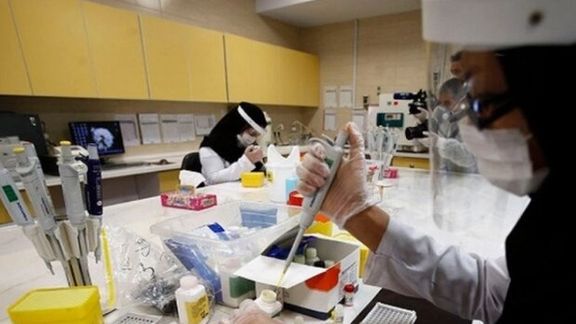
According to local reports, severe shortages of laboratory kits in Iran have led to the suspension of over 50 types of medical tests in the country.
Etemad newspaper on Friday reported that several medical diagnosis and genetic laboratories in Tehran and Esfahan have deactivated hormonal, infectious, and genetic tests in their registration systems because the required kits for performing these tests are unavailable.
The procurement of kits in Iran has been challenging in recent years, but this year the difficulty has reached a point where even buying them from the black market is not a possibility, the report says.
Over 80% of laboratory items in Iran are dependent on imports, and the equipment that is produced domestically requires its raw material to be imported as well.
The allocated foreign currency for importing laboratory equipment has experienced a sharp decrease to half of its previous amount in the past three years, according to the Etemad report.
Imports and the foreign currency market are controlled by the Iranian regime, meaning the funds that were meant for the purchase of medical tests have been spent elsewhere.
This is not the first time that medical products and equipment have become unavailable in Iran. Two years ago, there was a critical shortage of serums, and the Iranian Pharmacists Association stated that cost-cutting measures by the authorities was the leading cause of the shortages.
"We are facing both a shortage of kits and a significant increase in the prices of kits and other consumables, up to four or five times higher,” said Mohsen Manshadi, owner of the Manshadi Medical Diagnosis Laboratory in Tehran.
"Many times, my laboratory colleagues have had to repeat a test using multiple kits to arrive at the correct result or use cheaper kits,” Manshadi added.